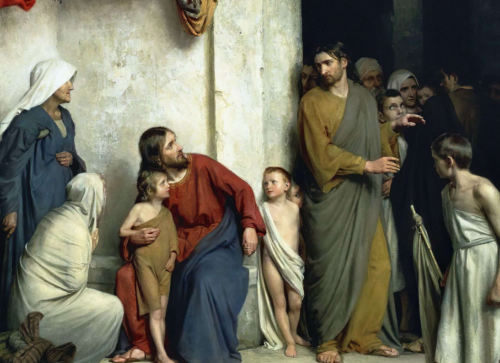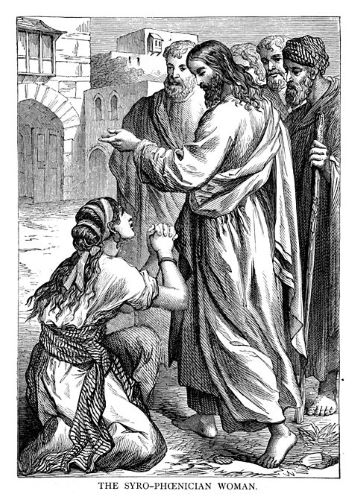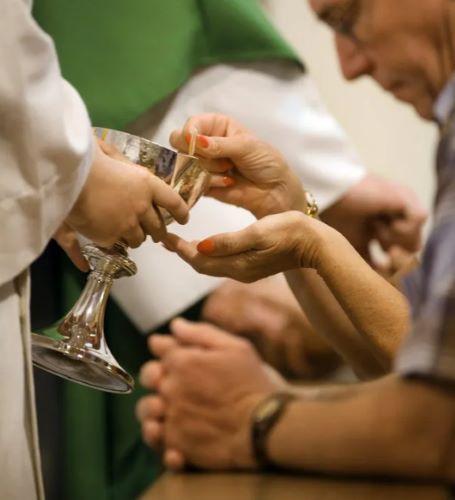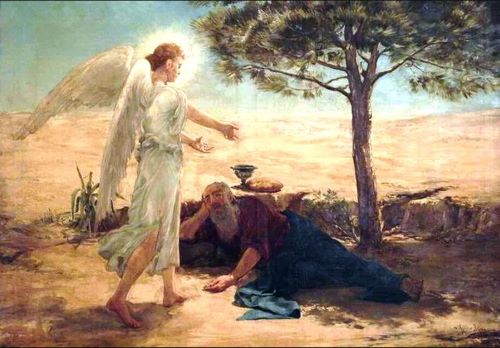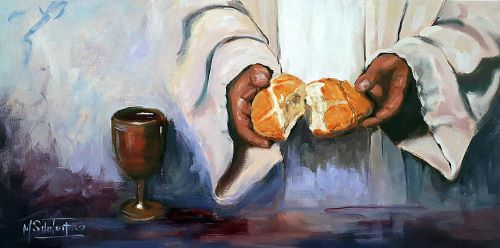
Justice, love, and Prayer
Year C
Genesis 32:22-31
Psalm 121
2 Timothy 3:14-4:5
Luke 18:1-8
May the words of my mouth O God… speak your truth…
Jacob wrestled with an angel… and is re-named Israel… which means… striven with God… 2 Timothy tells us to be persistent in proclaiming the message… because… the writer claims… the time is coming when people will not put up with sound doctrine… but will accumulate for themselves teachers to suit their own desires… and will turn away from listening to the truth… Jesus told the disciples the meaning of the parable in advance… which he didn’t usually do… he told them not to lose heart… that they need to pray always… and isn’t prayer a kind of striving… isn’t prayer when we seek not our own will… but God’s…
Because if we’re already whole… then prayer would be superfluous… but Israel doesn’t only mean striving with God… it also means striving with… contending with each other… as Jacob strove with Laban over Leah and Rachel… and with his brother Esau for his father’s blessing… and now… in today’s reading from Genesis… Jacob is on his way home to make amends with his brother… he is prepared to make a gift of 550 goats… rams… camels… cows… bulls… and donkeys… so after Jacob tricked Esau out of his birthright… he is seeking justice for… and reconciliation with him… but he is afraid of seeing Esau face to face… he is afraid of not being forgiven… but all that night… he wrestled with God… and he received blessing…
The theme of justice has been important to Luke since at least chapter 14… the Great Banquet… the Prodigal Son… the Unjust Steward… the Cleansing of the Ten Lepers… and now we have the Unjust Judge… we’re told that this is a city judge… ancient country people knew about cities… impersonal places where hardened… cynical people often took advantage of the weak… so this city judge is immediately recognized for who and what he is… but let’s think for a moment about this woman who comes to him… the Hebrew word for widow means… one who has no voice… theologian Robert Capon writes… this woman is a 24 karat loser… widows… especially in ancient times… were people who had lost not only their husbands… but their social standing… they had… in a word… lost their life as they knew it… and like the Prodigal Son… when he first works out his confession… she is figuratively dead… and she knows it… but she has not really accepted her death because she still hopes… like the Prodigal… that she can ace out the system… and get some old-style… if only marginal satisfaction from it… she has the gift of desperation… we don’t know what kind of opponent she has… whether she’s an older woman whose husband has passed on… or perhaps she’s a young mother with a mouth or two to feed… and now she seeks reparations so she doesn’t have to resort to begging… or prostitution… but as John Shea wrote… her voice is all she has… her only hope is that she keeps coming… persistence is not her fallback strategy… it is her only strategy…
And she must keep coming… because she deserves to be treated like a human being… and because she comes to a judge who has no fear of God… and no respect for anyone… she is vulnerable… aware of her predicament… she knows how the social systems of her time can work against her… and she cannot rely on those who have no respect for her…
And when the judge says… so she doesn’t wear me out… the Greek phrase also means… so she doesn’t give me a black eye… it may only be a figurative translation… but getting a black eye means getting a tarnished reputation… and a judge who’s supposed to give justice… doesn’t want to be known for not giving justice…
And it doesn’t matter whether this judge was appointed or elected… because he is a caricature… because in giving in to her… he avoids a tarnished reputation… because a judge who’s supposed to give justice… doesn’t want to be known for not giving justice… so the widow is using the little power she has… to fight injustice… her persistence becomes her prayer…
The Gospel starts out with Jesus telling us the point of the parable… Jesus doesn’t unravel the mystery of answered and unanswered prayer for us… he simply says to pray constantly and to not lose heart… knock and the door will be opened… seek and you will find… and prayer can help us realize… that while we participate in systemic injustice regularly and innocently… we can soften to it… and not only learn about it… but wrestle with ways to eliminate it…
Debbie Thomas wrote in The Christian Century… the point of the parable is that God is not like the unjust judge… but is a loving and just God who does not delay… and who grants justice when her children cry out… the problem with this understanding is that too often… our lived experience doesn’t bear this out… too often what we desire is delayed… too often… our most fervent prayers for healing… for justice… for peace… for joy… go unanswered… too often our experiences with prayer lead us to perceive God as an unjust judge… turned away from the urgency of our requests… for reasons we can’t begin to fathom… but theologian Huston Smith said: When the consequences of prayer and belief are worldly goods… focusing on these things turns religion into a service station for self-gratification and churches into health clubs… religion’s role is to de-center the ego… not pander to its desires…
In an article I read this week… about today’s Gospel lesson… Lutheran Pastor Diane Roth… distills this story into just two words… prayer and justice… at the retreat I attended this week… the Rev. Bill Nicholson observed that we can distill our Christian walk into almost the same two words… love and justice… in the Two Great Commandments… Jesus calls us to love God with all our heart… soul… and mind… and to love our neighbor as ourself… and in our baptismal vows… we commit to respect the dignity of every person… and strive for peace and justice for all persons…
In his book The Road Less Traveled… author M. Scott Peck claims that love is a verb… and when we love… we support the physical… emotional… psychological… and spiritual well-being of our partners… those in our families… and our neighbors… whoever they may be… it’s not about right belief… it’s about right practice… in the Parable of the Good Samaritan… when the lawyer agrees that it was the Samaritan who acted with mercy… Jesus says… Go and do likewise… not… Go and believe likewise… but do…
So maybe this parable isn’t about God at all… maybe it’s about us… maybe what’s at stake is not who God is… but who we are… maybe it’s about the state of our hearts… and the things for which we pray… and how we might fortify our spiritual lives through prayer… how we might put less value on doing… and more value on being… so that as we become increasingly established in the Ground of Being… our doing… the doing that we do… will increasingly reflect God’s will for us as community…
Listen to how plainly… prophets like Isaiah put it… the fast that I choose… is to loose the bonds of injustice… to let the oppressed go free… to cover the naked… to share bread with the hungry… to house the homeless… and then… I shall be called the repairer of the breach… the restorer of streets to live in… and perhaps… as we continue to strive with God… we too shall be renamed… like Jacob was…
Justice… love… and prayer… let us pray… Holy God… guide us to perceive what is right… and grant us both the courage to pursue it… and the grace to accomplish it… through Jesus Christ our Lord… Amen…

